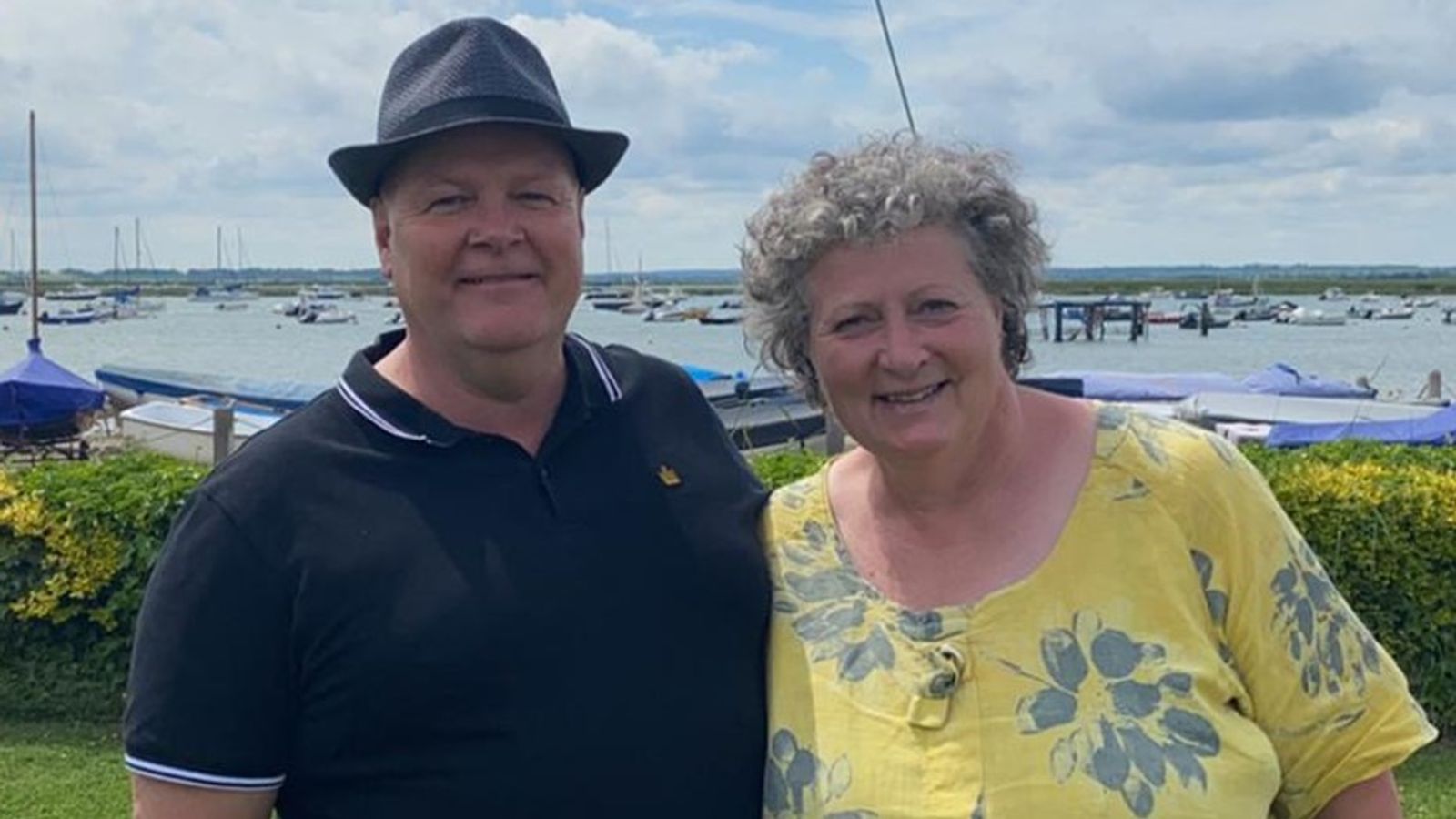An IT worker has been found guilty of murdering a couple with strong opioid Fentanyl.
Luke D’Wit was accused of killing Stephen Baxter, 61, and his 64-year-old wife Carol and rewriting their will to take charge of their shower mat and bathroom company.
The 34-year-old from Mersea worked for the couple and is said to have described himself as “almost like a son” to them.
The Baxters were discovered at their home by their daughter on Mersea Island in Essex on Easter Sunday last year.
Harry Baxter, the son, said D’Wit played “foul games torturing and drugging” his mother in the lead-up to his parents’ deaths.
Mr Baxter said in a statement released through Essex Police that he had already lost his mother “a long time ago” before his parents were found dead.
“I refer to the day Luke began his foul games torturing and drugging her,” he said.
“Unbeknownst to me, I had already lost my mother a long time ago.
“I feel great sadness looking back on the videos of her when she was acting strangely and seeing him in the background giggling and smiling knowing he’s the one inflicting this pain as we were all dolls in his dollhouse, victim to his manipulation.”
The Baxters’ daughter previously told Chelmsford Crown Court they “got on” with D’Wit, but all thought he was “weird”.
Ellie Baxter said he was brought in to help build a website but ended up visiting the house “every day”, eventually helping her mother take her medication.
She told the jury that D’Wit knew the pin code to the gate of their home and the location of a key safe.
The trial heard that two days before the bodies were found, doorbell camera footage captured him walking towards the Baxters’ house and looking at a phone.
“Was he watching them die?” prosecutor Tracy Ayling asked the court.
She added: “Was this when Mr D’Wit made everything pristine, cleaning up the cups and not leaving any trace?”
Fentanyl – an extremely strong opioid about 100 times stronger than morphine – was found in the bodies of Mr and Mrs Baxter.
The trial had lasted more than a month and D’Wit, who had denied murder, was convicted by unanimous verdict of the jury on a third day of deliberations on Wednesday.
The defendant, who used a wheelchair throughout the trial, did not appear to react in the secure dock of the court.
The judge, Mr Justice Nicholas Lavender, said he would sentence D’Wit on Friday.
‘He would have committed further murders’
Detective Superintendent Rob Kirby, of the Kent and Essex Serious Crime Directorate, said in an interview outside court that D’Wit was “without doubt one of the most dangerous men I’ve ever experienced in my policing career”.
He said: “I have absolutely no doubt that had he not been caught, he would have gone on to commit further murders.”
Mr Kirby said that “justice has been served today”, adding that D’Wit “rightly belongs behind bars”.
The defendant “fooled everyone”, he added.
“He befriended people, came across as a very amenable, helpful person but in the background he was a cool, calculated killer who spent years planning the demise of Carol and Stephen Baxter.”
He described D’Wit as a “loner” who “spent hours of his time creating false personas, all there to create control over the Baxters”.
“The level of deviousness he went to was phenomenal,” Mr Kirby said.
Asked about a possible motive, Mr Kirby said it was “unclear what was going on in D’Wit’s mind”.
“Certainly, he stood to benefit financially from the death of the Baxters and we believe that certainly this played part of the role in his motive,” he said.

